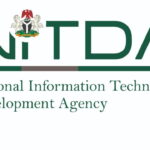The Federal Executive Council (FEC) has proposed amendments to the National Identity Management Commission (NIMC) Act and introduced a new bill aimed at taxing foreigners living and working in Nigeria. The amendments will require all expatriates and immigrants earning income in Nigeria to obtain a National Identification Number (NIN) and become part of the country’s tax system.
During a briefing at the Aso Rock Villa on Wednesday, Mr. Bayo Onanuga, Special Adviser to the President on Information and Strategy, explained that the new bill, if passed by the National Assembly, will expand the NIMC’s scope to include foreign individuals with a taxable presence in Nigeria.
“Once you are working here and earning income, you will be registered and given an NIN, which will serve as your tax identity. This change is aimed at ensuring foreigners are included in Nigeria’s tax structure,” Onanuga said.
Previously, the NIMC Act excluded foreigners from obtaining NIN. However, under the proposed law, anyone living or working in Nigeria and earning taxable income will be required to register.
Additionally, the government introduced the Economy Stabilisation Bill, which aims to pave the way for taxing foreigners. The bill would amend Section 16 of the NIMC Act to ensure that anyone residing in or subject to tax in Nigeria—whether a citizen or not—will be registered for tax purposes.
Furthermore, the FEC has proposed a third bill to amend the Nigerian Maritime Administration and Safety Agency (NIMASA) Act, allowing all fees, charges, and levies to be paid in Naira, promoting the use of the national currency instead of relying on the US dollar for payments.
This move aligns with the government’s broader strategy to strengthen the national economy by boosting tax revenues and encouraging the use of Naira in all official transactions.






